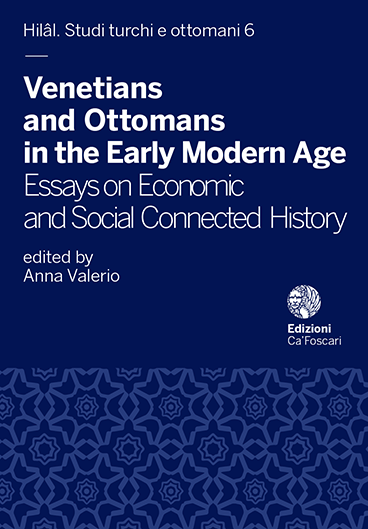- search 391 views
- file_download 40 download
- keyboard_capslock metadata
-
mark_email_readIscriviti alla newsletter
A Culture of Trust
Ottoman Merchants and Venetian Notaries in the Early Modern Period
abstract
The aim of this paper is to study the presence of Ottoman merchants in Venice in the Modern Age. The Ottoman shipping partnership as well as the Venetian commenda were based on the mudarebe (classical Islamic shipping partnership) and several examples of this kind of partnerships may be found even between Christians and Muslims. Notarial deeds were above all proxies and often give information on merchants, their number and even their private life. Some of them were agents but there were also family companies and Ottoman grandees who were involved in international trade. Communities of merchants both in Istanbul and in Venice were also sometimes created. Last but not least, these sources contain also some examples of insurance made by Muslims to protect their goods. In general in the 16th and 17th centuries, the Ottoman merchants who traded in Venice were not alone, but they could refer to a real commercial network. Ancient historiographical theories say that in the Modern Age Ottoman Muslims were not interested in international trade and that they left it completely in Christian and Jewish hands, however documents tell us a completely different story, a story of contacts, exchanges, and even confidence and friendship.
Keywords: Insurances history • Ottoman Economic History • Venetian notaries • Commercial partnerships history • Ottoman merchants





